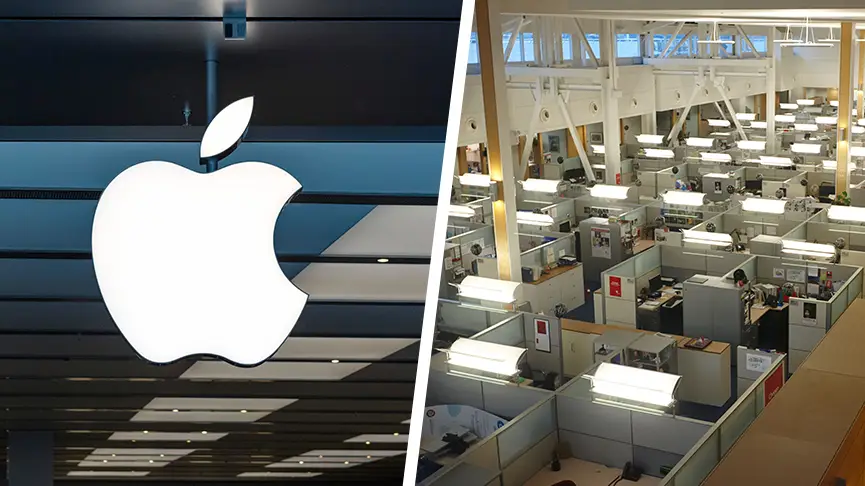
A top artificial intelligence executive is set to leave Apple after the company enforced its return-to-office (RTO) policy.
Apple is ordering all corporate employees to return to the office for at least three days a week, which is quite a lot compared to other Big Tech competitors.
Companies such as Meta, Google, and Amazon, are taking a much more relaxed stance by allowing some of their employees to work remotely forever.
The policy may have potentially earned one of these companies a new star AI employee.
Advert
Ian Goodfellow, who was the Director of machine learning at Apple, announced his resignation last week according to Verge reporter Zoe Schiffer.
Schiffer said Goodfellow made note of the reason behind his departure in his goodbye note to his team.
He said: “I believe strongly that more flexibility would have been the best policy for my team.”
Apple’s RTO policy was announced in June 2021 with CEO Tim Cook making a note to Apple employees that they would need to return on Mondays, Tuesdays, and Thursdays.
The move led to a petition started by Apple employees in a Slack channel for ‘remote work advocates’, which had 2,800 members and 80 people involved with the writing of the letter, according to The Verge.
The letter read: “We would like to take the opportunity to communicate a growing concern among our colleagues.
“Apple’s remote/location-flexible work policy, and the communication around it, have already forced some of our colleagues to quit.
“Without the inclusivity that flexibility brings, many of us feel we have to choose between either a combination of our families, our well-being, and being empowered to do our best work, or being a part of Apple.”
Six months later, it appears the letter fell on deaf ears and led to perhaps Apple’s most significant resignation yet from Goodfellow.
Interestingly, studies have shown that working from home doesn't impact an employee's productivity.
A report from Owl Labs found that 70 per cent of staffers in America who worked from home in 2021 found virtual meetings to be less stressful.
The study said: "90% of respondents that worked from home during the pandemic saying they were as productive -- or more -- working remotely when compared to the office.
"84% of respondents also shared that working remotely after the pandemic would make them happier, with many even willing to take a pay cut."
The research also found that 55 per cent of respondents stated they worked more at home than in the office, while 76 per cent said working from home made them happier.
Topics: Apple
